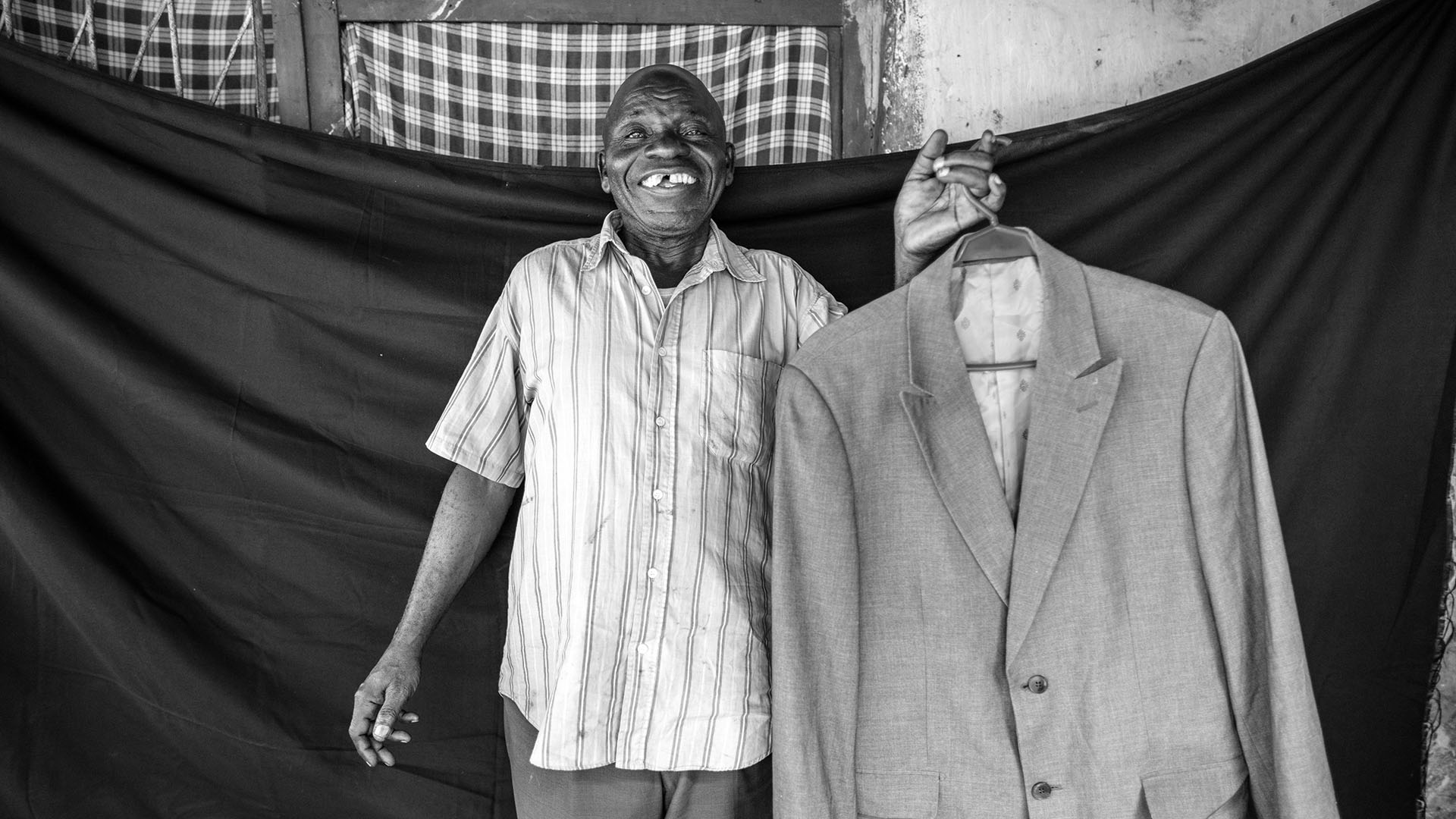Rwandan refugees in Malawi encouraged to return after 'go-and-see' visit
Rwandan refugees in Malawi encouraged to return after 'go-and-see' visit

BUTARE, Rwanda, December 28 (UNHCR) - After 11 long years living in exile as a refugee, Josephine is finally back at home - at least for a short visit - in her mother's farmhouse.
"I was feeling a bit ill the last few days," says her mother, a thin old lady whose strong hands and wrinkled face testify to a hard farming life, "but when I saw Josephine after such a long time, I started feeling better."
It is only a temporary reunion. Josephine has come with four other Rwandan refugees from Luwani Refugee Camp in Malawi on a UNHCR-organized "go-and-see" visit to get a clear picture of what life is really like at home, 11 years after the genocide and civil war that caused them to flee.
After the visit earlier this month, Josephine and the others returned to Malawi to help their fellow refugees decide whether or not to go back to Rwanda for good.
In the years following Rwanda's 1994 genocide, some 3.2 million Rwandan refugees have gone home, and UNHCR is actively promoting the repatriation of the 48,000 Rwandans who are still living as refugees across 14 African countries. Malawi is still home to some 3,400 Rwandan refugees.
Josephine was 19 when she left her village in the southern province of Butare in May 1994, shortly after the start of the genocide in which some 800,000 people were killed in just 100 days.
Alongside some of her neighbours, she walked hundreds of kilometres, first to Burundi and later to Tanzania. Although penniless, she managed to live off the charity of people in the villages she passed through. Josephine remained in Tanzania for two years, until before moving on in 1996 to the Luwani refugee camp in Malawi. During her nine years there, she got married and started her own family.
Now, in a small room of her mother's mud and wood house in the farming area of Gikonko district, Josephine is being fussed over by her mother, and other relatives and neighbours who have come to welcome her. She is all smiles, until she learns that her father is dead, and that her four brothers went missing in 1994 and have never been seen or heard of since.
"I am really happy to be back at home, but it was really hard for me to find out about the death of my dad and the disappearance of my brothers," she says. At the same time, there are consolations. "It is good to see how my younger sister who was eight when I saw her the last time, has grown up into a woman."
Time has changed her village as well. "Most of the houses in the village were destroyed during the war, and all the buildings I see are new," she commented.
Although she says refugees are considering leaving the Malawi camp because of shortages of food and firewood, her old neighbours caution her that land is scarce in Rwanda, and that agriculture has been hit by the drought.
Josephine's husband is a refugee from the province of Gikongoro, which is also in southern Rwanda. They are concerned about trying to reclaim his family's property. In case they do decide to come back to Rwanda, Josephine says it has to be where they have land to farm.
Josephine believes the establishment of traditional local courts, known as gacaca, to identify and try lower-level perpetrators of the 1994 genocide, has caused some Rwandans still in exile to hesitate about coming home. Also, some refugees still remain to be convinced that Rwanda is now a safe country.
During her time in her village, Josephine made a point of talking to the mayor of Gikonko district, as well as the gacaca coordinator in the area, so she could return to Malawi with a better understanding of these issues.
"I do not have a bad impression of the functioning of the gacacas, and this is what I am going to say to other refugees back in Malawi," she concluded. "Rwanda now seems a peaceful country, and I see no reason for not coming back home."
By Beatriz Gonzalez in Butare, Rwanda








